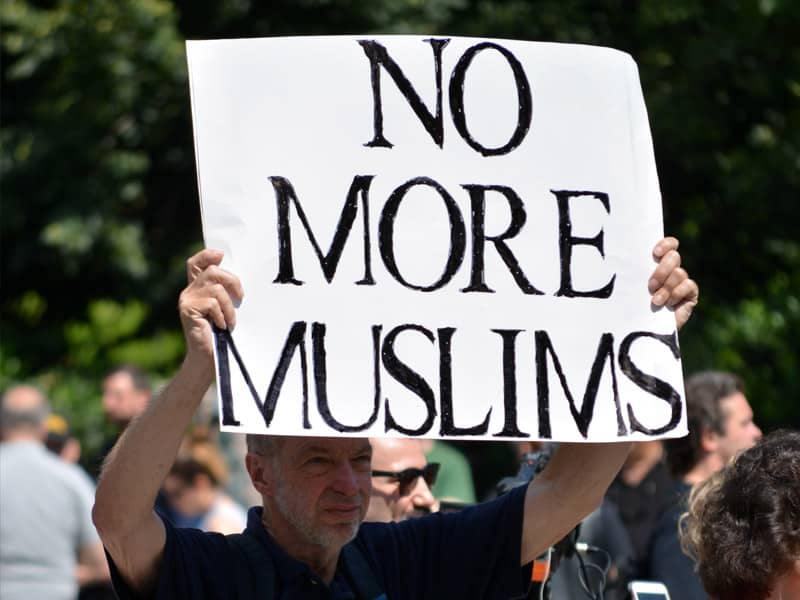They fear that their children, too young to know better, might eat some of the meat forbidden by their Muslim religion if a day-care worker served it.
They worry adult caretakers won't bathe the youngest children according to custom after they use the bathroom.
Workers at secular or Christian-based day cares most certainly won't lead the older children in the Muslims' series of daily prayers, said the women gathered in the living room of Sarab Naqshabandi's house. "We don't know any women who take their children to child care," the hostess said.
Her neighbor, Tavga Rashid, nodded. The women, all professionals, have put their careers on hold and their families into financial strain because of the situation, they said.
"We would like to be working," Rashid said.
Nashville-area Muslim parents, including a growing number of immigrants and refugees, say a lack of religiously and culturally appropriate child care is creating special hardships for their families. There are 442 home-based and larger, commercial child-care facilities in Davidson County licensed by the state's Department of Human Services. State workers said they were not aware of even one specifically geared toward the Muslim faith.
Although Midstate Muslims are trying to create a solution, their most immediate hope fell through this summer when a grant request drawn up by a consortium of agencies did not get funding from the local United Way. The proposal, led by the Kurdish Human Rights Watch, the Iraqi House, the Nashville New Americans Coalition, Sudanese Community Association of Tennessee and Somali Refugee Community, asked for funding for a "Family Resource Center." The applicants say it would have been used to establish a series of at-home day-care facilities run by and for Muslim mothers, which could eventually lead to the opening of a licensed child-care center in a commercial or school setting.
Along lower Donna Kay Drive, a stretch of duplexes off the Nolensville Pike corridor, at least one of the 20 or so Kurdish families could have opened its home as a state-licensed Muslim-run child-care facility.
They need it, the women said, because of experiences like Naqshabandi's.
"I got mad -- whew!" Naqshabandi said later. "And he was crying because I took it from him."
The religious rules forbidding pork also apply to pork byproducts, which can be hidden in gelatin, some cookies, and candy, say Muslim mothers. Neighbors who visited Naqshabandi's house to discuss the day-care problem know to search the fine print on food packages to weed out products with the offending ingredients.
The mothers removed their shoes and settled onto the living room couches opposite a woven Islamic verse that hangs on the wall. At their feet, the youngest children played.
They are eager to get out, back to their professions, the women said. In their hometowns in Iraq, Naqshabandi was an X-ray technician. Rashid taught at an elementary school, and Aesha Maroof worked in a health department.
Along Donna Kay Drive, the women have learned to work together, watching each other's children if one mother needs to run an errand. They first got to know each other in a refugee camp in Guam before they settled in Nashville four years ago. Even in the camp, they had heard through Kurdish women that the child-care situation in Nashville was bad, they said.
Other Muslim women living here said they had no such warning. Zulfat Suara, a certified public accountant who moved from Houston to Washington, D.C., and then to Nashville three years ago, said Middle Tennessee was the first place where she could not find a Muslim-run day-care center. Suara said she "went out of her way" to find other Muslim women willing to take her children into their homes.
"My kids have never been part of the mainstream," said the mother, whose youngest child is 4.
There is still hope of United Way funding to start a Muslim-run program, said Renata Soto, who works with the agency. Soto said a selection committee decided against offering the Muslim coalition $20,000 to fund a director's position and start its work this year, but United Way wants to work with the group to do more research and encourage it to submit another proposal for the 2003 funding cycle, she said.
In the meantime, Kurdish Human Rights Watch Program Director Tahir Hussain said the problems faced by Muslim families will persist.
Mainstream child care can keep the children occupied, but "if they don't start learning their language, their culture and their religious requirements, they're going to miss it," he said.

